MercoPress. South Atlantic News Agency
Economy
-
Thursday, January 5th 2017 - 09:21 UTC
Marine Le pen calls for new French currency and pledges referendum on EU membership

Front National leader Marine Le Pen has called for a new French currency and pledged to hold a referendum on the country’s membership of the European Union if she is elected French President later this year.
-
Thursday, January 5th 2017 - 08:04 UTC
Maduro reshuffles economic team and names new combative vice-president
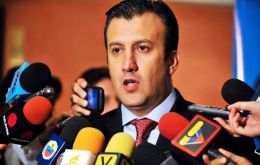
Venezuelan President Nicolas Maduro on Wednesday shuffled his cabinet by naming a new economy czar to oversee the OPEC country's decaying populist system and a new oil minister to confront the economic difficulties caused by low oil prices. He also appointed a new vice-president, state governor Tarek El Aissami, a hard liner that could replace Maduro if he is forced to step down.
-
Thursday, January 5th 2017 - 07:50 UTC
Beijing's “airpocalypse” red alert for smog and yellow alert for fog
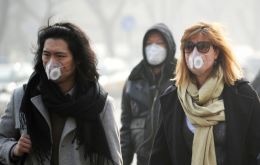
On Wednesday, Beijing was under a “red alert” for smog, the highest of four levels, and a “yellow alert” for fog. Other areas, particularly in northern China were still under red alert as of Wednesday for both fog and smog. The high pollution has been going on for a number of weeks, causing flight delays, and leading to traffic bans, as part of what is called “smog season” or “airpocalypse.”
-
Thursday, January 5th 2017 - 07:38 UTC
London-Santiago direct flights inaugurated on Wednesday

The new direct flight London-Santiago de Chile inaugurated on Wednesday should help increase the number of visitors from Britain and Europe, said Chilean authorities when they received the British Airways flight at the Chilean capital airport.
-
Wednesday, January 4th 2017 - 11:38 UTC
Venezuelan military fully involved in food staples illegal marketing and hoarding
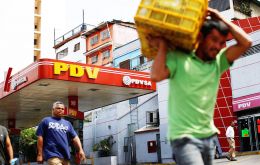
The Venezuelan military is selling food staples at up to 100 times the government-mandated costs in illegal marketplaces, according to an independent media investigation. The black markets are carried out at all levels of the military from foot soldiers on up to generals.
-
Wednesday, January 4th 2017 - 11:12 UTC
Good weather prospects for Brazil's anticipated record soybean crop
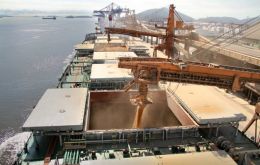
Rain showers forecast for this week should benefit soybean crops across Brazil and should not be heavy enough to hamper harvesting of the first shipments of the 2016-17 season, meteorologists said on Tuesday.
-
Wednesday, January 4th 2017 - 09:13 UTC
UK ambassador to EU steps down criticizing preparations for Brexit negotiations
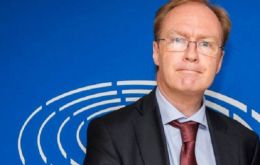
UK's ambassador to the European Union urged British colleagues in Brussels to challenge “muddled thinking and... speak truth to power” as he quit ahead of Brexit talks, according to the BBC. Writing to staff, Sir Ivan Rogers said ministers needed to hear “unvarnished” and “uncomfortable” views from Europe.
-
Tuesday, January 3rd 2017 - 19:57 UTC
Argentina reinstates refunds for agriculture exports
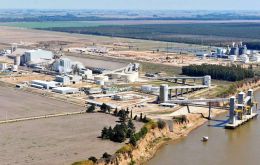
Argentina has decided to reinstate refunds for agriculture exports, responding to a promise to the provinces from president Mauricio Macri but also to prop foreign trade and boost the most dynamic sector of an anemic economy. The fiscal cost is estimated in 165 million dollars and is extensive to wheat flour, beef, sunflower oil, powder milk, cheese, honey and other produce from the provinces.
-
Tuesday, January 3rd 2017 - 19:41 UTC
Magallanes salmon harvest reaches 68.000 tons in 2016
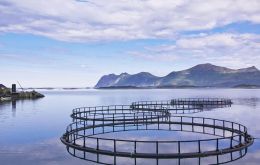
Salmon farming production in Magallanes region, extreme south of Chile reached 68.000 tons in 2016, a 30% increase over the previous year, according to Drago Covacich, head of the Magallanes Salmon and Trout farmers.
-
Monday, January 2nd 2017 - 12:41 UTC
Castro condemns “obsolete mentality” against foreign capital, as economy contracts
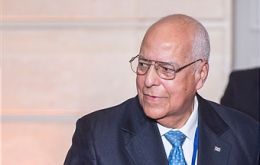
In spite the significant surge in tourism set off by the detente with the United States, Cuba’s economy shrank in 2016 for the first time in nearly a quarter century with the main culprit: a plunge in aid from crisis-stricken Venezuela. President Raul Castro called on the Cuban people to overcome the obsolete mentality against foreign capital.
